- Home
- Middle East
- Syria: From Euphoria to Growing Concern
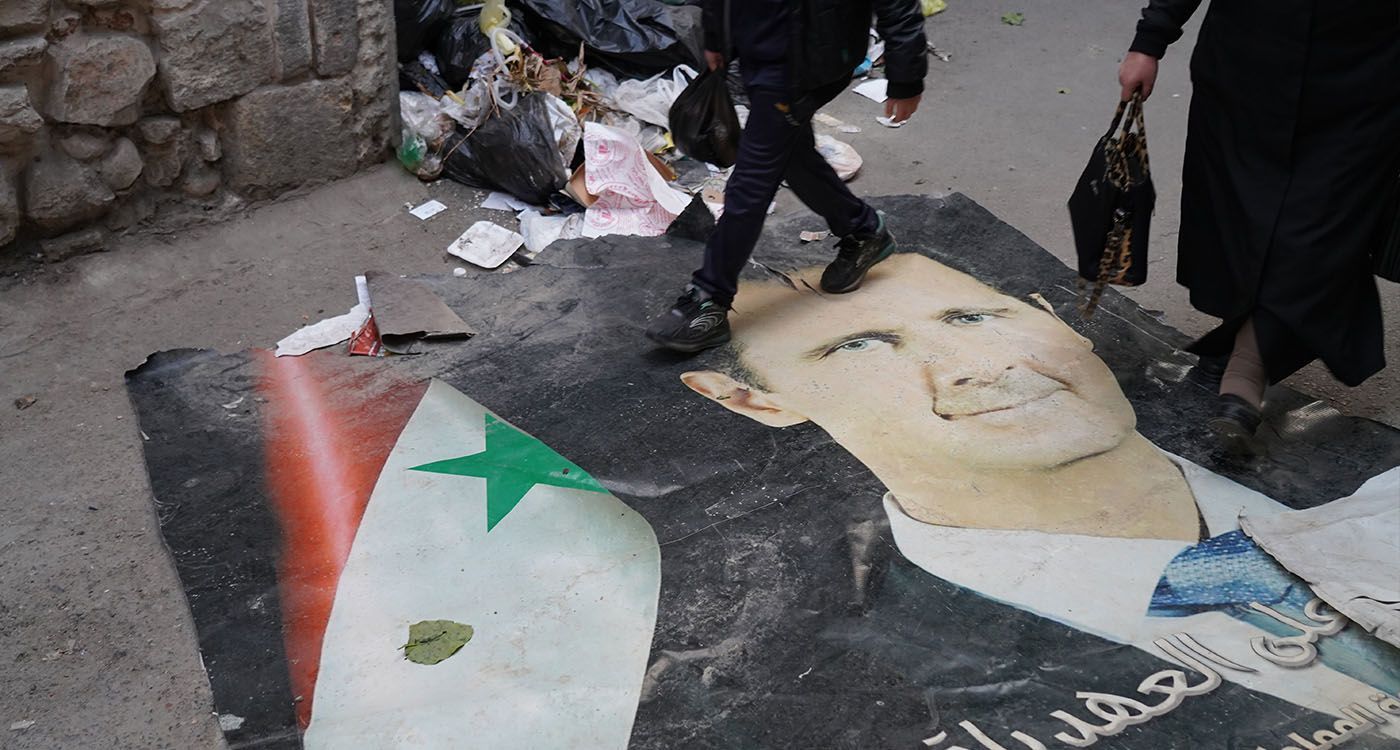
A poster of former president Bashar al-Assad being trampled by passersby in the Qaymarriya district of Old Damascus. ©Elie Ziadé / This is Beirut
The fall of Bashar al-Assad took everyone by surprise, almost no one saw it coming. Yet, it was met with joy. Scenes of celebration across Syria, as well as in countries hosting millions of Syrian nationals and refugees, along with the shared joy of other populations — notably in Lebanon — reflect the harsh rule that the Assad dynasty had imposed on his people for half a century.
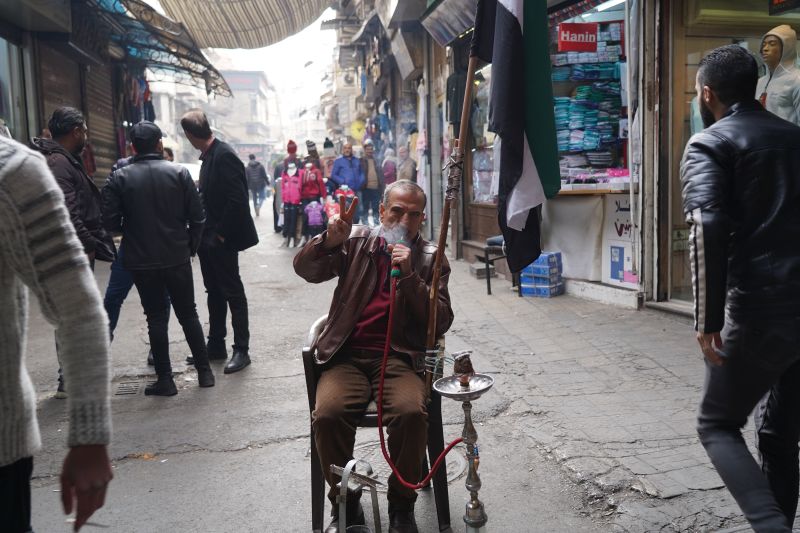
A septuagenarian merchant in the al-Hamidiyah souk celebrating the rebels' victory on December 11, 2024. © Fadi Chaanine / This is Beirut
The liberation of Damascus last Sunday by the Islamist rebel forces of Hay’at Tahrir al-Sham (HTS) and the Syrian National Army (SNA), backed by Turkey and armed groups from the south, was met with celebration by the city's residents. Spontaneous gatherings erupted across the city, with locals handing out sweets, dates and flowers to armed fighters strolling through the streets with rifles slung over their shoulders. Many posed for pictures with the fighters. At first glance, everything suggests that the situation can only improve after decades of tyranny.
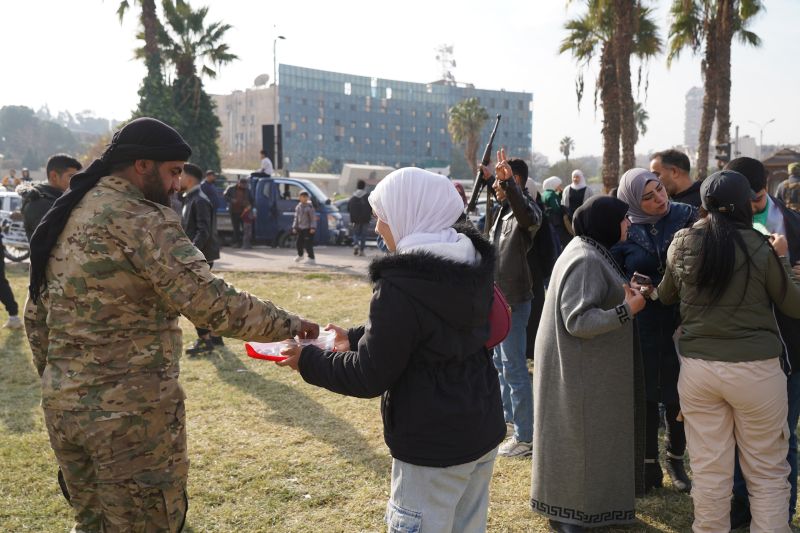
A Damascene student handing out dates to thank the rebel fighters. In the background, a young Syrian takes a selfie while holding a Kalashnikov, at Omayyad Square, Damascus, on December 12, 2024. © Elie Ziadé / This is Beirut
Since the launch of the military operation by HTS and the SNA in the Aleppo region, all eyes have been on Ahmad al-Charaa, better known as Abu Mohammad al-Joulani and, more specifically, on his political narrative: Is it genuine or timeserving? Having passed through the ranks of Al-Qaeda and the US prisons in Iraq, al-Joulani remains a controversial figure. Some observers argue that HTS is no longer a jihadist group, claiming that its gradual shift over the years has turned it into an insurgent rebel group opposing an autocratic regime, with no interest in global jihadism. However, others take a more cautious view, insisting that the group remains fundamentally radical in its interpretation of Islam.
An uncertainty that stirs fear and anxiety among a Syrian population just beginning to break free from half a century of autocracy.
The Legacy of 54 Years of Tyranny
Although officially secular, the Baathist regime of the Assads leveraged sectarianism to consolidate its power and control over the Syrian population. In an interview with This is Beirut, Father Siraj Dib, a Maronite priest at the Damascus Archdiocese for 14 years, explains that for decades, the regime “instilled a fear of the other.” Presenting itself as the protector of minorities against “extremists,” Hafez al-Assad, and later his son Bashar, deepened divisions between communities, particularly between Sunni Muslims and the other minorities—Alawites, Shiites and Christians.
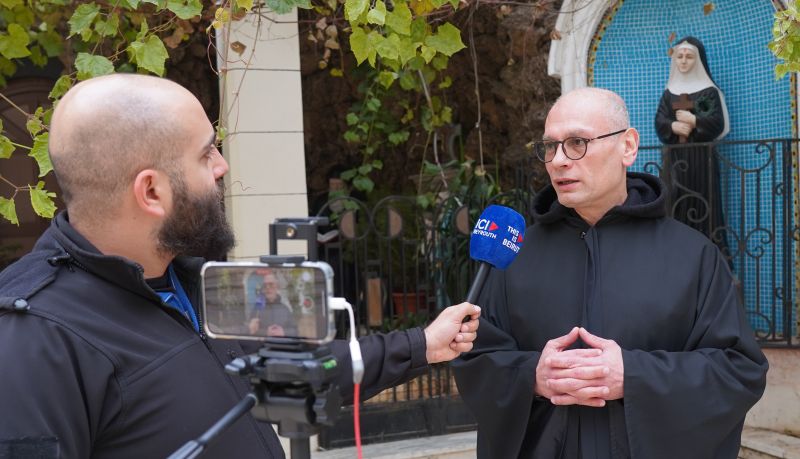
Father Siraj Dib, a Maronite priest from the Archdiocese of Damascus, speaks with This is Beirut on December 11, 2024, at the Maronite Archdiocese headquarters. © Fadi Chaanine / This is Beirut
The same sentiment is echoed by Jacques Mourad, the Syriac Catholic Archbishop of Homs and former monk of Mar Moussa. He states, “For fifty years, we lived under horrific theories of ghettos and minorities, or the belief that Muslims would kill us and drive us out—ideas that were the product of the regime.”
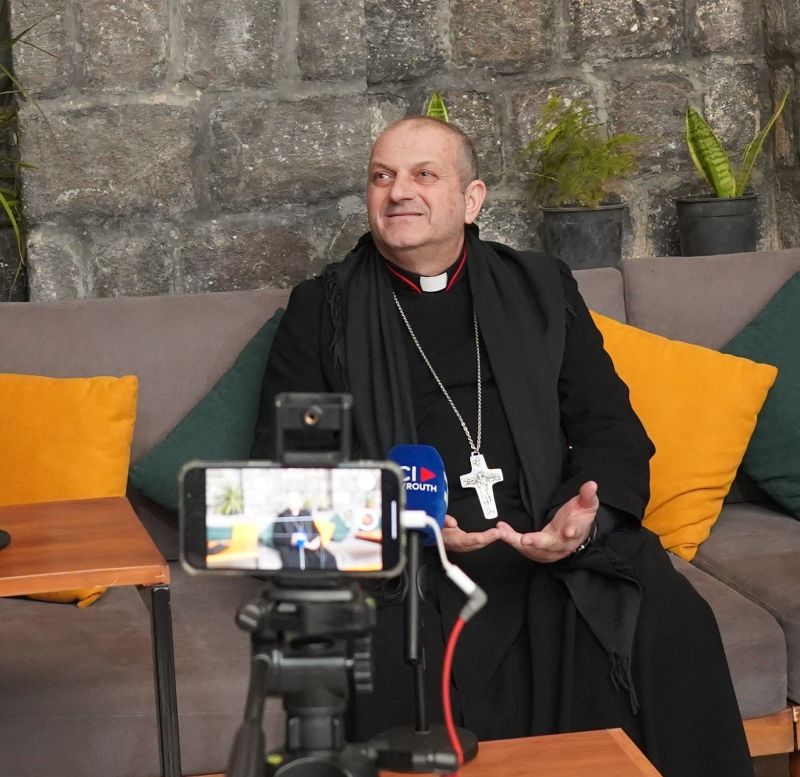
The Syriac Catholic Archbishop of Homs and former monk of Mar Moussa speaks to This is Beirut on December 13, 2024, at a study center supported by L'Œuvre d'Orient. © Fadi Chaanine / This is Beirut
Additionally, on the eve of its collapse, the regime distributed weapons to certain neighborhoods, particularly those with large minorities, such as Alawites, encouraging them to ensure their own safety. In some peripheral areas not seized by the rebels and deserted by the official troops, residents formed self-defense militias and neighborhood watch groups.
In a café in Bab Touma, a Christian neighborhood of Damascus, a man in his fifties from a village near Homs confides that he is hesitant to leave permanently. “We didn’t fight alongside Assad and the Iranian militias. But who’s to say the Sunnis won’t take revenge by expelling us from our homes or treating us as second-class citizens?”
A fear of the “other,” nurtured for half a century, which has only intensified over the past 13 years.
The Fear of a Conservative Islam
Although al-Joulani's public statements seem aimed at reassuring Syria's diverse communities, particularly religious minorities in a country where 90% of the population is Sunni, a walk through the streets of Damascus and conversations with locals and fighters reveal the source of their concern.
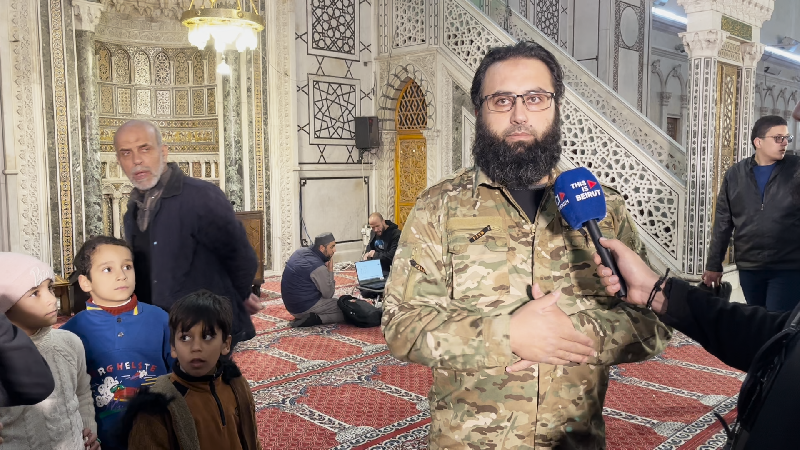
An HTS officer at the Umayyad Mosque on December 11, 2024. © Elie Ziadé / This is Beirut
While facial hair is not necessarily an indicator of ideological affiliation, the long beards and lack of mustaches—characteristic of a Salafist practice of Islam—worn by most men in military fatigues strolling through the streets do little to ease people’s concerns.
At the entrance to the Great Mosque of the Umayyads, “mujahedeen” – a term they proudly embrace – closely inspect the clothing of women, insisting that they cover themselves entirely with an abaya or niqab, even if they are already wearing a veil. Additionally, women from northern Syria, accompanied by their husbands, stand apart from the other women whether veiled or not.
During many conversations with fighters, This is Beirut heard unequivocal statements: “Islam has triumphed,” “Syria is a country for all free Muslims who wish to settle here,” “We don’t need a new constitution, the Sharia is already in place,” “We lived for 1,400 years without issues with the dhimmis (non-Muslims),” “You're from Lebanon? Inshallah, my brother, we will soon be united, as we are one people, along with Iraq and Palestine...”
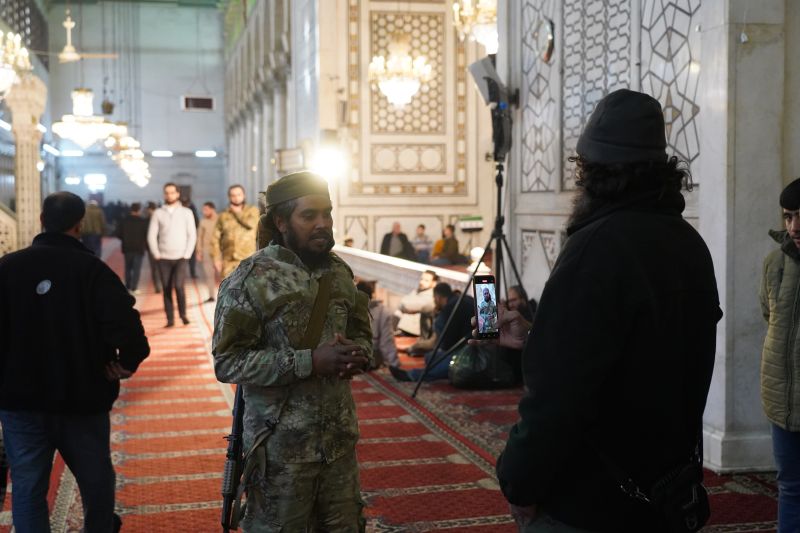
A Caucasian HTS fighter in military fatigues filming a propaganda video at the Umayyad Mosque in Damascus on December 11, 2024. © Elie Ziadé / This is Beirut
These statements and behaviors indicate that, while the leadership is sincere in its desire to establish a state where Syrian citizenship takes precedence over religion, the grassroots support of its northern factions may not necessarily embrace a moderate version of Islam.
From Aleppo to Damascus, through Homs and Lebanon, all the Syrians, even Sunnis, with whom This is Beirut spoke, are unanimous: Nothing could be worse than the brutality of the Assad regime, but will we have a regime that guarantees our freedoms, or will we end up like the Turks, with an officially secular state that is fundamentally Islamized?
Read more

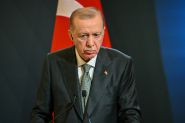


Comments